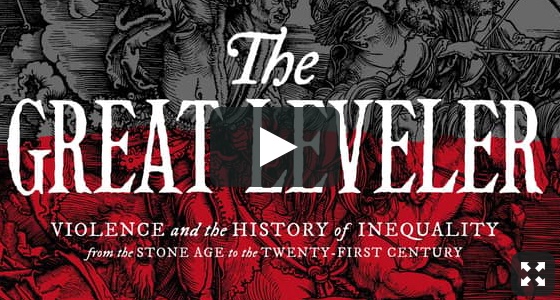Walter Scheidel cites 4 proven ways to reduce inequality
After studying thousands of years of human history, Stanford professor Walter Scheidel identified four indisputable ways to reduce inequality: war, revolution, state collapse, and deadly pandemics. These “four horsemen,” as Scheidel dubs them in The Great Leveler: Violence and the History of Inequality from the Stone Age to the Twenty-First Century (Princeton University Press), have proven far more effective at reversing inequality than more peaceful efforts, like improving education, or non-violent shocks, like financial crises.
Today’s levels of inequality aren’t unprecedented, Scheidel notes. The share of income owned by the wealthiest Americans has only recently risen to levels last seen in 1929. In the UK, the richest 10% held more than 90% of all private wealth before the First World War; today, it’s a little more than half. ...
Quartz: Past periods of reduced inequality were preceded by catastrophe. How does something so destructive—the “four horsemen” you describe in the book—produce anything positive?
Scheidel: The first one is mass-mobilization warfare and the classic examples are World War One and World War Two. A very large share of the population got drafted into military service, while the civilian labor force also became fully mobilized for the war effort.
A strong nation state was needed to organize the war effort and tax rates went up to extremely high levels on the rich—90% in some cases—to pay for it. Capital lost value because of government interventions and physical destruction, particularly in Europe. Meanwhile, there’s massive redistribution to workers. Then there’s the knock on effects on democracy. Voting rights, membership in trade unions, etcetera. All these things really surged around these wars because governments have to offer the people something in return.
The second, in a sense, is a no brainer: it’s transformative revolution. If you are Lenin or Mao and you go out in Russia or China and expropriate all the rich, often killing them in the process, and nationalize everything, you plan an economy where you set all the wages and all the prices. That’s an extremely invasive process but if you are only interested in equality that’s a very quick way of doing it. ...
